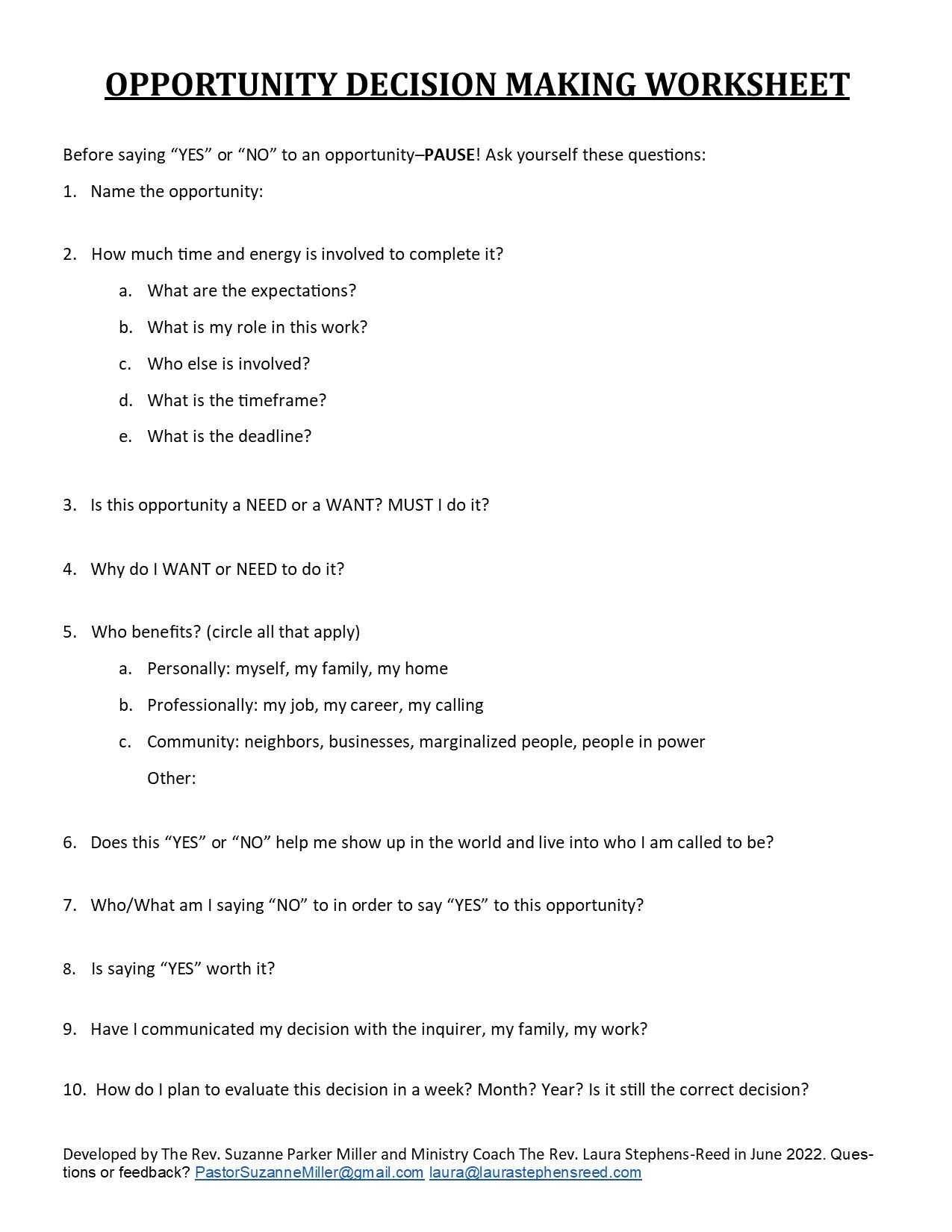I am currently working with a congregation that is just beyond the redevelopment stage. The leaders are building and revamping organizational pieces that will allow the church to move from all of the responsibility falling to the pastor and to SuperVolunteers toward a more equitable and sustainable distribution of efforts. Because it can be hard to zoom out when you’re in the thick of the details, I created the graphic above to help the leaders see the importance of each aspect of the systemic work they’re doing:
This congregation identified its values and vision as part of a discernment process a couple of years ago. Being clear about commitments and direction provides a strong foundation for all a congregation does and a touchstone for focusing efforts.
Core documents such as by-laws make the values and vision functional: here is how we go about our church life because we have named these commitments toward this hope for our future.
The by-laws set the leadership structure that carries out the various processes and procedures laid out in the by-laws.
The leadership structure decides how to make faithful use of the many tangible and intangible gifts to which the congregation has access.
The leadership’s use of gifts supports the day-to-day operations of the church.
Smooth operations make it possible for the congregation to live into God’s invitations to ministry.
So, then, we can be much more effective if we’re clear about what our biggest commitments are and stay grounded in them at all times. By-laws are not just an irrelevant document that we maintain for legal reasons. Leadership must assess regularly and most effectively deploy its resources, which are much more than money and facilities. Ministry and operations are designed to support and speak to, not compete with, each other.
What questions or thoughts does this graphic prompt for you? How are the various levels in this image in conversation with one another in your context? Where is more communication needed? And how do you start that ball rolling?





















